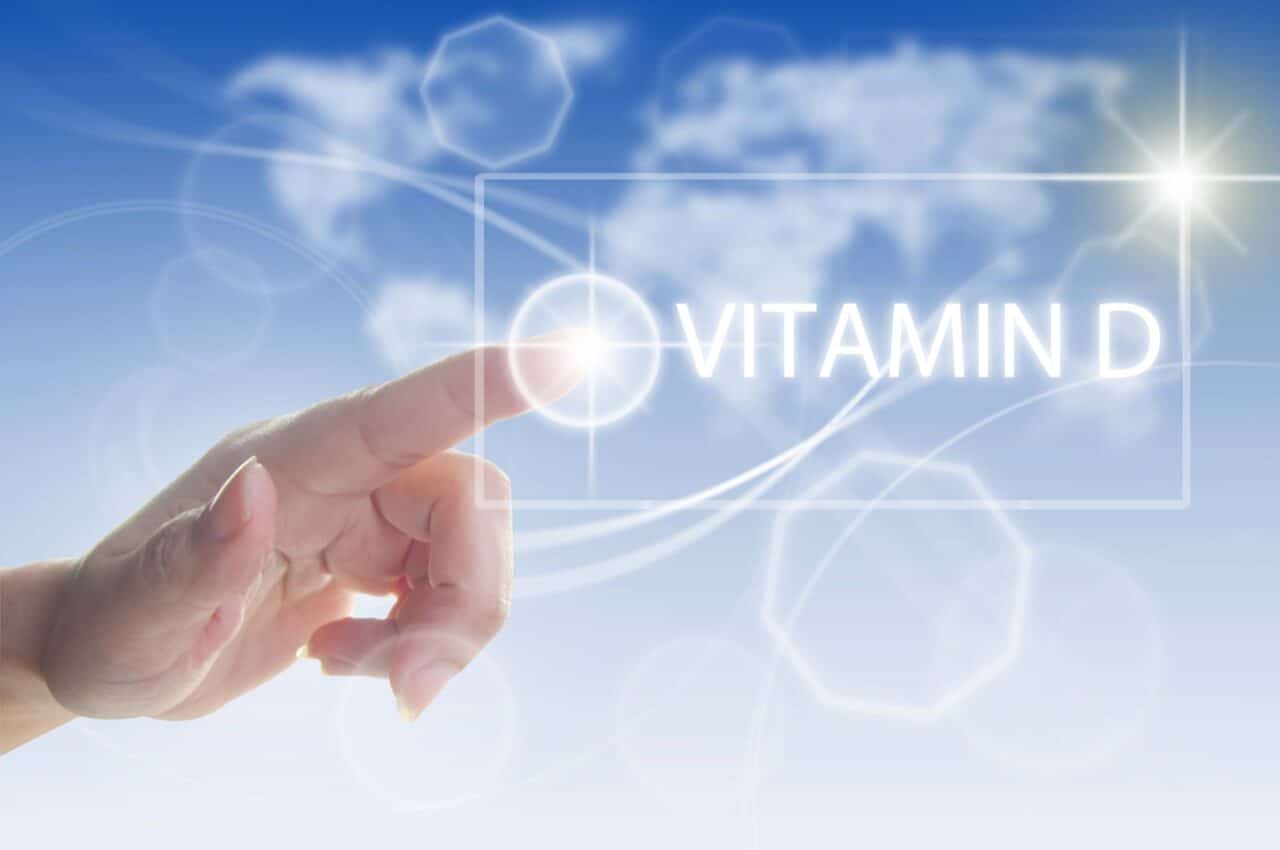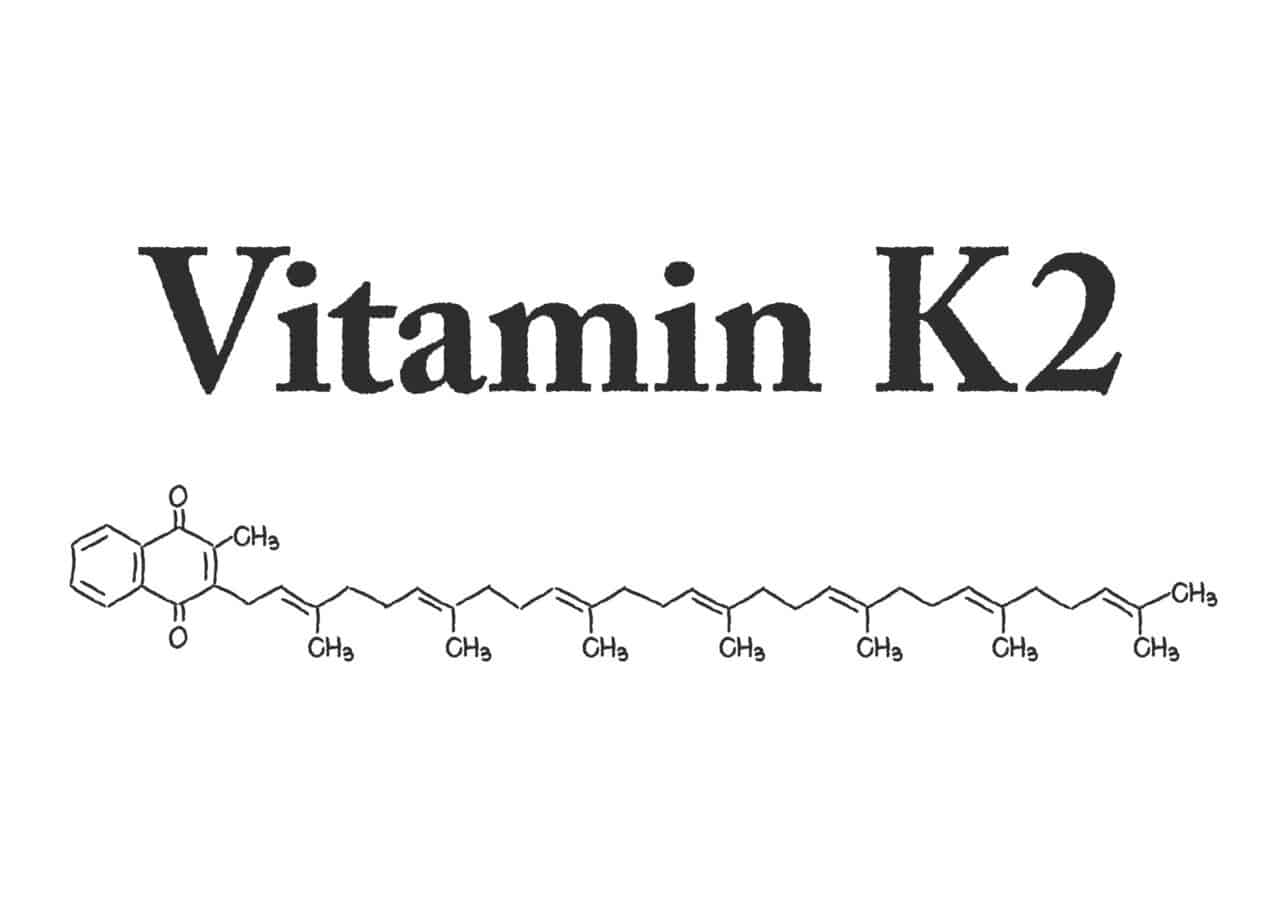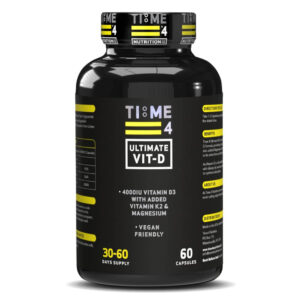Vitamin K2 and vitamin D: Can they reduce your chance of a heart attack?
Vitamin K2 and vitamin D: Can they reduce your chance of a heart attack?
Vitamin K2 and Vitamin D
You may have noticed that there have been several reports in the media recently regarding the increase in cardiovascular disease that has occurred in the last couple of years. The most common form of cardiovascular disease is coronary heart disease (CHD), sometimes referred to as coronary artery disease.
In England alone, 1.9 million people are living with CHD and every 10 minutes it claims someone’s life. CHD occurs when the arteries of the heart, the coronary arteries, become narrowed by a build-up of a fatty material known as atheroma within their walls. This restricts blood flow to the heart and, consequently, reduces the oxygen supply to the heart muscle. The pain or discomfort felt from such narrowing is called angina and if a blockage occurs it can cause a myocardial infarction, which is commonly referred to as a ‘heart attack’.
While the role of fatty deposits in the coronary arteries in CHD is generally well known, less so is the effect of calcium deposits. Yet coronary artery calcification (CAC) and aortic valve calcification (AVC) are important precursors to myocardial infarction. The aortic valve separates the left ventricle from the aorta, the largest artery in the body. It controls the flow of blood from the heart to the rest of the body.
Although lipid-lowering treatments, such as statins, are commonly used for the prevention and management of arterial disease, effective treatments targeting the calcific process are less certain despite various dietary and pharmaceutical interventions being investigated. Now an increasing body of evidence suggests that vitamin K2 and vitamin D can potentially play a significant role in protection against vascular calcification.
A recent study by Hasific and colleagues (1), published in the Journal of the American College of Cardiology (JACC), investigated the effects of supplementation with vitamin K2 and vitamin D on the progression of calcification of the coronary arteries and the aortic valve.
Before we look at the study in detail, it is important to understand what vitamin K2 vitamin D are and what they do.

Understanding Vitamin D
Vitamin D is a fat-soluble vitamin, which plays an essential role in many functions of the body. These include promoting calcium absorption in the gut and maintaining adequate serum calcium and phosphate concentrations to enable normal bone and tooth mineralisation and to prevent hypocalcemic tetany (involuntary contraction of muscles, leading to cramps and spasms). It is also needed for bone growth and bone remodelling. Without sufficient vitamin D, bones can become thin, brittle, or misshapen.
Vitamin D has other roles in the body, including reduction of inflammation as well as modulation of such processes as cell growth, neuromuscular and immune function, glucose metabolism and maintaining the structure of teeth. It can help to reduce depression, aid weight loss and play a role in muscle growth and repair.
Over 1000 vitamin D–responsive genes have been identified. These affect muscle protein synthesis, muscle strength, muscle size, reaction time, balance, coordination, endurance, inflammation, and immunity, all of which are important for health and athletic performance.
There are two main types of vitamin D known as vitamin D3 (cholecalciferol) and vitamin D2 (ergocalciferol or calciferol). Although many supplements contain vitamin D in the form of vitamin D2, the science shows that D3 is more effective at raising blood levels of vitamin D and improving vitamin D status than D2.
The body typically requires an estimated 3000–5000 IU/day of vitamin D. However, the high levels of physical activity in athletes may result in increased physiological demand.
Despite the importance of vitamin D being well acknowledged, deficiency is very common. In fact, it is estimated that about 1 billion people worldwide have low levels of vitamin D, and the problem seems to be getting worse: deficiency rates have doubled from 1994 to 2004 with multiple factors responsible, including sun avoidance, sunblock use, and increasing obesity rates.
Although there is some scientific evidence that suggests that people who exercise regularly are more likely to have high vitamin D levels, deficiency amongst athletes is common. As we have already seen, the body requires an estimated 3000–5000 IU/day of vitamin D and the high levels of physical activity in athletes may result in an increased physiological need. Since vitamin D is actively used in many metabolic pathways, it is possible that athletes may require an increased intake to assure adequate availability and storage for optimal performance, as deficiencies have been shown to negatively impact various aspects of physical performance. For example, athletes who have lower vitamin D levels have been shown to score poorly on the Vertical Jump Test, Shuttle Run Test, Triple Hop for Distance Test, and the 1 RM Squat Test.

Understanding Vitamin K2
The term ‘vitamin K’ refers to a group of fat-soluble vitamins that play a role in blood clotting, the maintenance of healthy bone, and the regulation of blood calcium levels. Deficiency has been linked to various age-related diseases including cardiovascular disease.
There are two main forms of vitamin K: vitamin K1 (phylloquinone), mainly found in plant foods such as leafy greens, and vitamin K2 (menaquinone), found mainly in certain animal and fermented foods. Vitamin K2 is also produced by gut bacteria in the large intestine. Despite this, the average intake of this important nutrient is low in the modern diet.
Vitamin D and K2
Vitamin K2 is strongly associated with vitamin D because of its role in increasing the enzymes that activate vitamin D made proteins responsible for regulating where calcium is deposited in the body. This not only supports skeletal health, but also prevents the deposition of calcium in soft tissues, including the calcification of the arteries, which contributes to atherosclerosis. Consequently, this helps to keep both your heart and bones healthy. Working together, vitamin D and vitamin K2 can also improve insulin levels and blood pressure.
Study design
Hasific and colleagues (1) conducted a randomised, double-blinded, placebo-controlled trial, considered to be the ‘gold standard’ in research.
A total of 389 participants were randomly assigned to either daily oral supplementation with vitamin K2 and vitamin D or a placebo for 24 months. They then underwent a clinical examination and blood tests every 6 months, with CT scans performed at baseline, 12, and 24 months to monitor the build-up of calcium.
Results
The results showed that both the vitamin D and K2 group and the placebo showed an increase in calcification. At this point, it would seem reasonable to think that vitamin D and K2 had no effect. However, further analysis showed that for participants that had a CAC score of 400+, which indicates a very high amount of plaque in the coronary arteries, the CAC progression in the vitamin D and K2 group was lower compared to the placebo. In addition, ‘safety events’, such as myocardial infarction and stroke, were fewer in the supplementation group (1.9% vs 6.7%). Interestingly, supplementation appeared to have no significant effect on the progression of aortic valve calcification during the 2-year follow-up.
The authors concluded that participants with no prior heart disease who supplemented with vitamin K2 and D had no significant reduction in mean CAC progression over a 2-year period compared to the placebo. As expected, the high-risk participants with CAC scores over 400 AU had the highest absolute increase in CAC score, but they also gained the greatest benefit from vitamin K2 and D supplementation. It is possible that the effect is simply most evident in the participants with the most notable progression and that the follow-up period was too short to detect a difference in the participants with lower CAC scores.
How do vitamin D and K2 reduce calcification?
It seems that vitamin D, and particularly vitamin K2, are essential to activate a protein known as matrix Gla protein, which is considered to be the strongest inhibitor of the calcification processes in the vascular wall.

Conclusion
The take home message from this is study is that if you are at an increased risk of coronary heart disease, you should strongly consider supplementing with vitamin K2 and D, after consulting with a suitably qualified health care professional. Even if you are not currently considered high risk for coronary heart disease, the evidence overwhelmingly demonstrates the benefits of ensuring you maintain the recommended levels of vitamin K2 and Vitamin D for both optimal health and performance.
Time 4 Ultimate Vit-D
Time 4 Ultimate Vit-D is an advanced high strength vitamin D formula providing a dose of up to 100μg of vitamin D3 (4000iu). We have also added magnesium, which is important for the conversion of Vitamin D3 to its active form and vitamin K2 (MK-7), which helps to ensure that calcium is absorbed in the right places in the body, i.e., bones and teeth. It also prevents the accumulation of calcium in places it is not required and can be problematic, namely the arteries and other soft tissues of the body.
As vitamin D is a fat-soluble vitamin and is best absorbed when consumed with dietary fat, we have also included medium chain triglycerides (MCTs) to optimise absorption.
Time 4 Ultimate Vit-D is Vegan Friendly.

